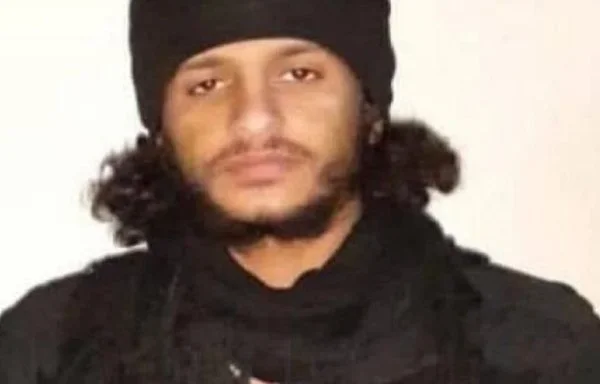Security
ISIS in crisis following elimination of key global leader in Iraq
The successful operation that killed ISIS's chief of global operations shows the group's vulnerability and compromises its ability to function.
![Aftermath of the March 13 precision strike that killed ISIS's top deputy Abdallah Makki Muslih al-Rifai in Iraq's Anbar province. [Rudaw X account]](/gc1/images/2025/03/20/49638-us-strike-rifai-600_384.webp)
By Al-Fassel |
The US-Iraqi operation that killed "Islamic State of Iraq and Syria" (ISIS) chief of global operations Abdallah Makki Muslih al-Rifai highlights vulnerabilities in the group's command structure and compromises its ability to function.
The March 13 strike, carried out in Iraq's Anbar province by US forces, in cooperation with Iraqi intelligence and security forces, eliminated al-Rifai (aka Abu Khadijah), along with another operative.
The targeting followed "several years of relentless pursuit, leveraging the vast intelligence network" of the Kurdish region and close coordination with federal Iraqi forces, according to the Kurdistan Region Security Council.
Though intelligence sources remain divided as to whether he was in fact the group's top leader, al-Rifai was ISIS's chief of global operations and second-in-command.

As such, he controlled critical operational planning, logistics and financial networks.
Furthermore, the successful strike on al-Rifai suggests significant penetration of ISIS's security apparatus by elements disloyal to the organization, underscoring the group’s vulnerability and fueling paranoia among group members.
Since the death of Abu Bakr al-Baghdadi in 2019, ISIS has not been able to appoint a successful figurehead, cycling through a list of lesser-known leaders, who were killed or took their own lives as they faced defeat.
The group announced the appointment of its fifth, and current, leader, who goes by the nom de guerre Abu-Hafs al-Hashimi al-Qurashi, in an August 2023 audio message. But his identity has been the source of much speculation.
Fragmented network
The rapid succession of ISIS leaders points to the group's fundamental instability and to endemic intelligence failures within its ranks, analysts say.
With its core leadership compromised, ISIS has been forced to rely on its Afghanistan-Pakistan and African affiliates, reflecting a desperate dispersal rather than strategic expansion.
This geographical shift in ISIS's nexus of power highlights the tensions among the group's affiliates as the core entity loses its grip on the Levant.
The elimination of al-Rifai is more than a tactical victory, analysts say, as it accelerates the erosion of ISIS's central authority.
The demonstrated vulnerability of the group's senior leadership, combined with mounting internal security concerns, suggest the group's grandiose ambitions have faded as it becomes just another fractured, hunted terrorist group.
As it is forced to retreat toward less-contested peripheries, such as Somalia, the group has attempted to mask its dispersion as "strategic adaptation," even as its territory and leadership crumble under sustained counterterrorism pressure.
This has brought ISIS's ability to maintain operational effectiveness amid leadership attrition, internal paranoia, and geographical dispersion into question, even among its remaining hardcore supporters.
A wonderful article that explains many of the early symptoms of cancer. May God protect us and you all from this deadly disease.
God is sufficient for us, and He is the best Disposer of affairs. God willing.